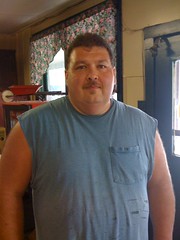Dr. Ogan Gurel to will arrive in Washington, D.C. on Sunday, July 26, after walking almost 700 miles from Chicago on behalf of health care reformThroughout his “Walk for Health Care, “ Chicagoan has heard from
everyday Americans about the need for health care reform
For immediate releaseTuesday, July 21, 2009Chicago, IL—Dr. Ogan Gurel will arrive in Washington, D.C. on Sunday, July 26, as he completes the “Walk For Health Care,” which began when he departed Daley Plaza in his hometown of Chicago, IL, on Saturday, June 27. Throughout his journey Dr. Gurel has met everyday Americans who have shared their own health care stories, which reinforce the need for major health care reform. Dr. Gurel has shared those stories on his blog, http://walk4healthcare.org and via Twitter (http://twitter.com/walk4healthcare). Upon arriving in the nation’s Capitol Dr. Gurel hopes to meet with members of Congress and share the stories he has picked up along the way.

“Along the way I have met with hundreds of people and gathered stories of health care concerns that absolutely must be heard by the lawmakers in Washington, D.C.,” said Dr. Gurel. “I believe the health care reform bills being debated on Capitol Hill may very well be the most important pieces of legislation since the Civil Rights era.”
Dr. Gurel, who has walked along Lincoln Highway (US Route 30) for the majority of this trip, came up with the idea of the walk not in an effort to uphold any particular policy position or piece of legislation, but rather to bring out the voice of the people and to advance the principles of universality and affordability as a framework for moving the health care debate forward.
Upcoming stops on the Walk For Health Care include: Everett, PA on July 21; Breezy Point, PA on July 22; Hagerstown, MD on July 23; Frederick, MD, on July 24; Gaithersburg, MD on July 25; and Washington, DC on July 26.
###
About Dr. Ogan GurelDr. Gurel, originally from New York City and a graduate of Stuyvesant High School, is a physician educated at Harvard University and the Columbia University College of Physicians & Surgeons. He completed surgical internship at the Massachusetts General Hospital in Boston and having also worked as a health care consultant, an international medical relief physician (in Macedonia during the NATO campaign and in Turkey after the 1999 earthquake), a medical device company CEO, and a basic biomedical researcher, Dr. Gurel has seen virtually all sides of health care both in the U.S. and abroad. He has been a patient (both insured and uninsured) and presently, as a self-employed consultant, he, like nearly 50 million other Americans, lacks health insurance.
Photo Credit:
Darrell Sapp, Pittsburgh Post-Gazette







